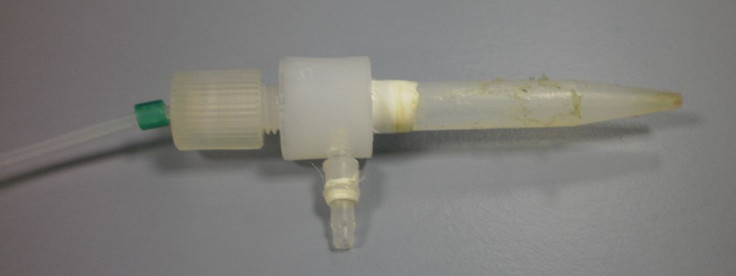Interferon Beta Shown To Rev Up Lung Response To Coronavirus Infection, Reducing Need For Ventilation

KEY POINTS
- Interferon beta is a naturally occurring protein that is key to the lungs' response to a viral infection
- Coronavirus appears to suppress the body's interferon beta response
- Inhaling interferon beta boosted the body's immune response to COVID-19
British scientists Monday claimed a COVID-19 treatment breakthrough: Using an inhaled form of interferon beta reduced instances of patients requiring ventilation by 79% and improved chances of recovery.
Scientists at the U.K. biotech firm Synairgen (SNG.L) said inhalation of the protein stimulated an immune response in the patients who received the treatment in the double-blind study of 101 patients at nine hospitals. Six of the patients who received only a placebo died.
The results have yet to be published and peer reviewed.
In addition to reducing the chances of being placed on a ventilator, patients who received interferon beta were more than twice as likely to recover, the company said in a press release.
“This assessment of SNG001 [interferon beta] in COVID-19 patients could signal a major breakthrough in the treatment of hospitalized COVID-19 patients,” Synairgen CEO Richard Marsden said.
"We couldn't have expected much better results than these," Marsden told the BBC.
The study found interferon beta reduced breathlessness, a key symptom of the disease, considerably. Those patients who were hospitalized with severe disease requiring supplemental oxygen and treated with the protein had statistically significant better odds of recovery after 28 days of treatment.
“The results confirm our belief that interferon beta, a widely known drug that, by injection, has been approved for use in a number of other indications, has huge potential as an inhaled drug to be able to restore the lung’s immune response, enhancing protection, accelerating recovery and countering the impact of SARS-CoV-2 [COVID-19] virus,” said chief investigator Tom Wilkinson, professor of respiratory medicine at the University of Southampton.
Synairgen co-founder Stephen Holgate, a clinical professor of immunopharmacology at the University of Southampton, said the findings are good news, especially with the flu season approaching.
“Our inhaled treatment of giving high local concentrations of interferon beta, a naturally occurring antiviral protein, restores the lung’s ability to neutralize the virus, or any mutation of the virus or co-infection with another respiratory virus such as influenza or RSV as could be encountered in the winter if there is a resurgence of COVID-19,” he said.
Marsden told the BBC the company expects to be able to deliver several hundred thousand doses a month by winter if the treatment is approved by regulators.
Interferon beta is a protein that helps the lungs fight off viral infections. The coronavirus appears to suppress the body’s initial response, but delivering an inhaled version of the protein through a nebulizer appears to wake up the immune response.
The protein is routinely used to treat multiple sclerosis. It also has been shown effective against asthma and other chronic lung conditions.
Naveed Sattar, a professor of metabolic medicine at the University of Glasgow, told the BBC the treatment could be a game-changer, but a larger trial is needed before any conclusions can be drawn.
© Copyright IBTimes 2025. All rights reserved.




















